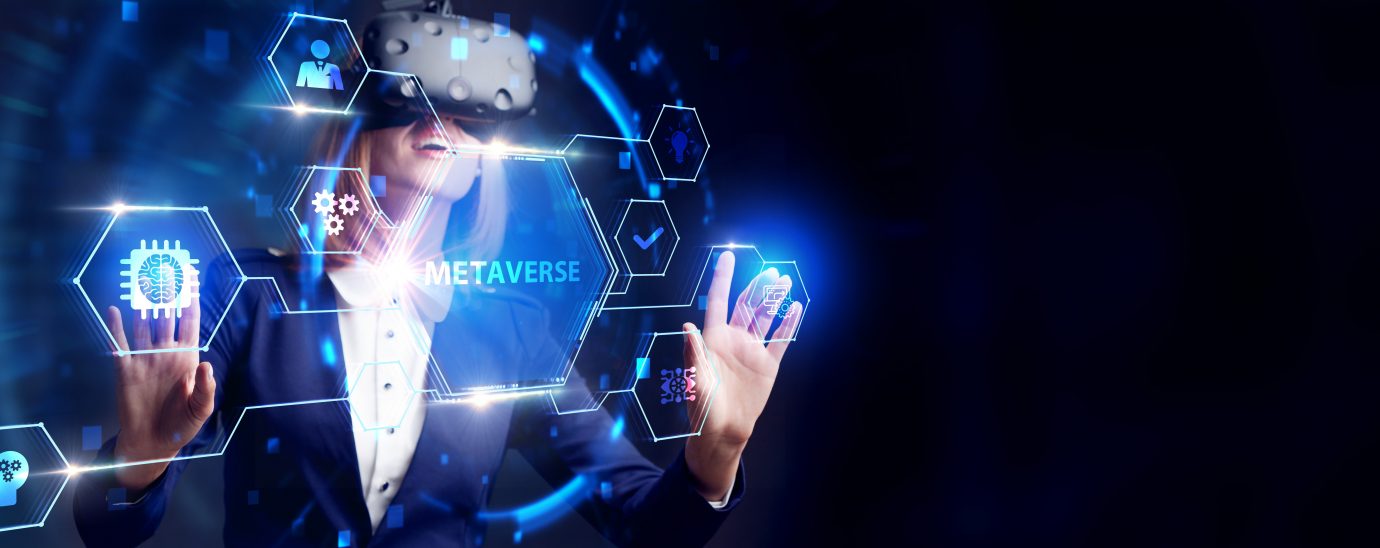The Metaverse changing the workplace

We look at the various ways in which the Metaverse will change the workplace and the way businesses operate, with comments from Phil Perry, head of UK & Ireland at Zoom and James Morris-Manuel, EMEA MD at Matterport.
With Facebook rebranding as Meta on 28 October 2021, the Metaverse has become a hot topic of discussion and can be seen as a major trend to look out for in 2022. While the technology is in the early stages of development, many are already discussing how it will change the workplace and how businesses operate.
The Metaverse has been pegged as the next version of the internet and social media, with only a few differences as mentioned by XR Today:
- Users can log in via virtual reality (VR); this opens up new brand engagement possibilities, from trying out apparel to exploring a piece of real estate.
- Users can be situated anywhere globally, removing any geographic barriers in e-commerce.
- Users will be equipped with a digital wallet in the Metaverse, making purchase transactions more seamless.
- Users will be able to teleport freely around the Metaverse to participate in groups and join (and pay for) events.
- Users will engage in a new storytelling experience aided by 360° videos and 3D modeling, which means advertising must transform.
How does the Metaverse fit into the future of work?
When asked how the Metaverse will fit into the future of work, Phil Perry, Head of UK & Ireland, Zoom said, “The Metaverse is an exciting new concept that we could see having many use cases in the hybrid workplace of the near future. VR undoubtedly has a key role to play in this, giving businesses and employees another avenue for communication and connectivity, no matter where everyone is.”
Users will be able to collaborate both virtually and in reality, asynchronously and in real-time, enabling teams to have powerful, engaging, and efficient meeting experiences, regardless of physical distance. Perry added, “to improve connectivity even further, Zoom Whiteboard can be joined to Horizon Workrooms’ desk view and wall view to increase VR integration. Consumers will be able to “draw” on their physical desk or “write” on a physical wall, which will be transcribed to their Zoom Whiteboard.”
This kind of technology aligns with the concept of the Metaverse, delivering a better experience than in-person meetings. In the hybrid office of the future, collaboration tools will be vital. “Emerging technologies such as VR, AI, and 5G, and new advancements like the metaverse, will continue to enhance this, bringing the best of in-person and virtual communications together for maximum productivity and flexibility,” explained Perry.
Changing the way businesses operate with the Metaverse
James Morris-Manuel, EMEA MD at Matterport believes that, because of the possibilities that the Metaverse will bring to businesses, many companies have been exploring how to tap into its potential. “One under-explored area is the buildings and spaces we live and work. Less than 1% of the world’s four billion buildings and 20 billion spaces are digitized – leaving a huge growth capacity of around 99%,” explained Morris-Manuel. Combined with the global value of real estate at US$326.5trn, it is clear that there is a ripe area of growth in conjunction with the Metaverse.
Morris-Manuel added, “one technology that can help with building the Metaverse is digital twins or digital replicas of the real world. Digital twins create an immersive 3D virtual model of any building or space, such as a shop or office.” This brings online a wealth of analog data that can be searched, modeled, and used to draw additional value from physical spaces. “Collecting and indexing this data will deliver a lot of value to improve businesses and their services and using the insights,” added Morris-Manuel.
“By deploying digital twins, businesses can import dimensionally accurate real-life spaces into the virtual mirror world that the metaverse offers,” he clarified. “Businesses that use digital twins as part of their strategic planning can optimize their productivity and operations while offering new experiences. From property ownership or virtual games that use AI technologies that underpin them, digital twins help to build the mirror world by transferring replicas from the real world to the virtual.”
In closing, Morris-Manuel commented that “the extension of this is that the technology also helps retailers create more immersive experiences to increase customer engagement – benefits which can also bleed into the Metaverse as well, to drive further interest in products. By digitizing the built world via digital twins, businesses can unlock their asset’s value, bringing about the emergence of a possibly limitless number of potential metaverse services from retail and beyond.”
This article is from our monthly magazine content, February 2022. To get a first look at all this content, please download our magazine upon release here.
Click here to discover more of our podcasts
For more news from Top Business Tech, don’t forget to subscribe to our daily bulletin!
